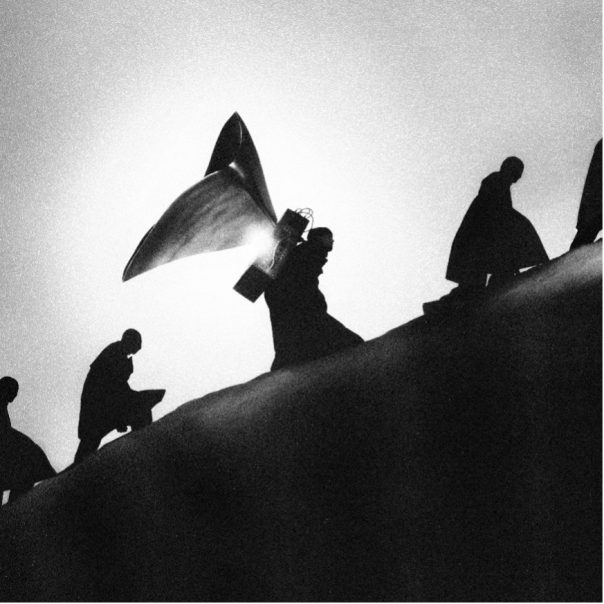ALBUM REVIEW: James Blake takes another step on ‘Playing Robots Into Heaven’

James Blake, “Playing Robots Into Heaven.”
James Blake fans old and new are in for an adventure with Playing Robots Into Heaven. Both an homage to past work—most notably the CMYK series—the new new album also delves into rave culture and dubstep, in which he’s also found a unique sound.
Playing Robots Into Heaven
James Blake
Republic, Sept. 8
9/10
Get the album on Amazon Music.
With production by Blake alongside the likes of Dom Maker, Rob McAndrews and Khushi, the album is as rich and complex as James Blake himself. It’s a step beyond the balladry of 2021’s Friends That Break Your Heart and 2022’s Wind Down, a collection of atmospheric songs that played with the idea of using artificial intelligence tech in music.
Lo-fi, rhythm-and-blues-like opener “Asking to Break” offers a visibly drastic shift. The song offer a beautiful sound and vocals, but filtered through a thick, granular haze. Blake is arguably best known for his talents as a producer, so electronic instrumentals and beats are typically at the forefront of his catalog. Lyrically, however, he explores some new thought-provoking territory on the second track, “Loading.”
“Wherever I go I’m only as good as my mind/ Which is only good if you’re mine,” he sings over airy ascending and descending melodies.
Though modulated, Blake’s voice is distinct and recognizable, as is his uncanny ability to mesh the ethereal with a hard and textured electronic bass. He does both with “Tell Me” and “Fall Back,” on which he returns to his house roots.
“Big Hammer” samples the Ragga Twins, pioneers of London’s Unity Sound System in the ’90s, with a heavy dubstep melody reminiscent of Blake’s early work. (The accompanying video matches the chaotic energy of the song, showing a group crashing a car and robbing an ice cream shop and a bank).
“I Want You To Know,” co-written by Pharrell Williams, starts off as a mellow house track with the clinking of some shakers, smooth modulated vocals and synth woodwinds, but shifts momentum in some parts. It’s a nice transition into the latter half of the album.
The sparse “Fire The Editor,” with its quavering bass line, seems to be a personal statement on life as an artist and being made to feel like a failure. Blake shows some personal growth and respect for self-worth.
“If I see him again, we’ll be having words,” he declares.
As in much of his music, Blake is able to be both the minimalist and the maximalist simultaneously. “If You Can Hear Me” is harrowingly and tragically beautiful from the get-go. The piano ballad is an open letter to his father, himself a musician (and founding member of jazz rock band Colosseum). It gives a glimpse into their complex relationship and how it’s affected Blake’s career, finding success outside of his father’s fame.
“Dad if you can hear me, I chased it all too far/ I couldn’t seem to find my own way back to the car/ I followed your lead,” he sings over soft keyboard lines. “You’d speak less than I’d like.”
The title track, which closes the album, is purely instrumental, with otherworldly bloops and bleeps that would fit right in with the score to “Close Encounters of the Third Kind.” The song teleports listeners into a futuristic world that, true to form, is a blend of humans and machinery.
Follow writer Vera Maksymiuk at Twitter.com/veramaksymiuk.
